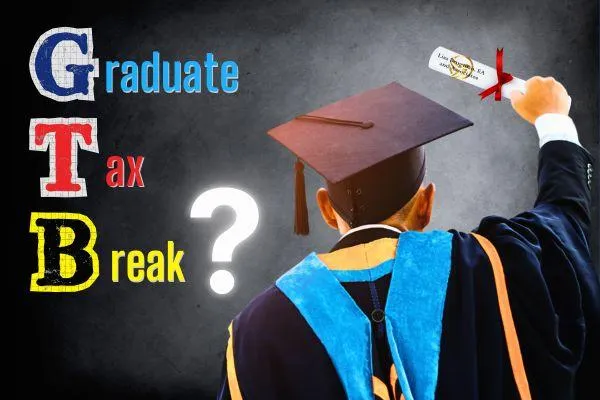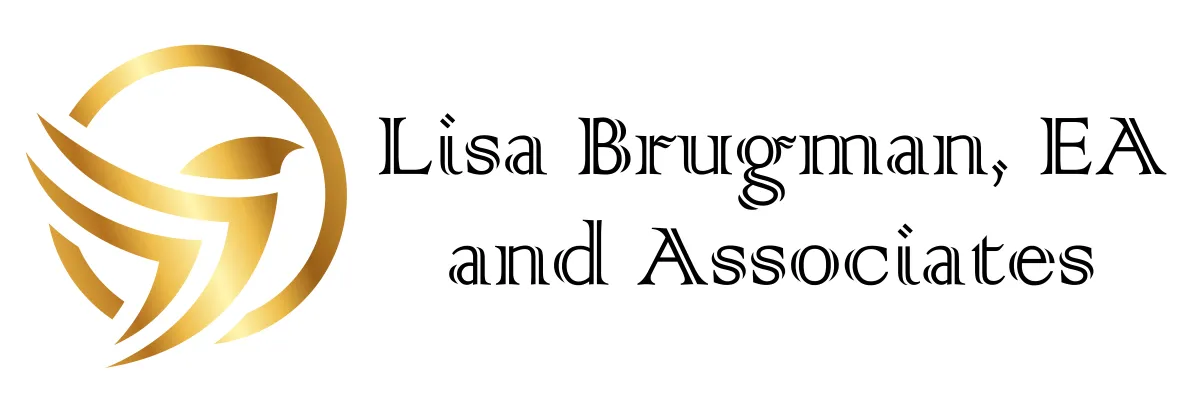BLOG

Tax Breaks for Graduate Students?
Maximizing Your Tax Benefits: Can You Claim a Tax Break for Graduate School Tuition?
Pursuing higher education is a significant achievement, but the financial burden can be overwhelming, especially when considering graduate school. After enjoying tax benefits during your undergraduate years, you might be wondering, "Can I still get a tax break for my graduate school tuition?" The good news is that there are tax-saving opportunities available, though they come with certain limitations. Let's explore the options.
Understanding the American Opportunity Credit (AOC)
The American Opportunity Credit (AOC) is a valuable tax credit designed to help students cover education-related expenses during their undergraduate years. However, it has some restrictions that may affect graduate students.
Eligibility Criteria for AOC:
The AOC is available only for the first four years of post-secondary education.
Students must be enrolled in an eligible educational institution.
They must be pursuing a degree.
The student should be enrolled at least half-time for at least one academic period during the tax year.
A felony drug conviction disqualifies a student from claiming the AOC.
The student's modified adjusted gross income must be under $90,000 ($180,000 if married filing jointly).
The student cannot file as married filing separately.
Receipt of Form 1098-T from the educational institution is necessary.
Qualifying Expenses for AOC:
Tuition fees.
Mandatory enrollment fees.
Books and course materials required by the institution.
How Graduate Students Can Benefit from AOC:
While the AOC is primarily targeted at undergraduate students, there is a unique situation where graduate students might still qualify. For instance, if you begin a tax year in your final undergraduate year, graduate in the spring, and start graduate school in the fall of the same year, you could claim the AOC for up to $4,000 of your qualifying expenses for that tax year. This is because, at the start of the tax year, you were still within your first four years of post-secondary education.
AOC Benefits:
The AOC provides a maximum credit of $2,500 per eligible student.
Up to $1,000 of this amount is refundable, meaning you could receive it as a refund even if you owe no tax.
Exploring the Lifetime Learning Credit (LLC)
For those who don't qualify for the AOC, the Lifetime Learning Credit (LLC) is an alternative worth considering. Unlike the AOC, the LLC is not limited to the first four years of post-secondary education and can be claimed for all years of higher education.
Eligibility Criteria for LLC:
The student must be enrolled in courses at an eligible educational institution.
Courses should lead to a degree or another recognized education credential or help improve job skills.
The student must be enrolled for at least one academic period during the tax year.
The modified adjusted gross income must be under $90,000 ($180,000 if married filing jointly).
The student cannot file as married filing separately.
Form 1098-T from the educational institution is required.
Qualifying Expenses for LLC:
Tuition fees.
Mandatory enrollment fees.
Books and course materials, but only if the institution requires them to be purchased directly.
Advantages of LLC:
The LLC offers 20% of up to $10,000 of qualified education expenses, translating to a maximum credit of $2,000 per tax return.
The LLC can be claimed for as many years as you qualify, unlike the AOC, which is limited to four years.
Choosing Between AOC and LLC
While both the AOC and LLC provide tax relief for education expenses, they cannot be claimed simultaneously for the same student. If you qualify for both, you'll need to decide which credit offers the greater benefit for your situation.
Key Differences:
AOC: Higher credit amount ($2,500 maximum) but limited to the first four years of post-secondary education. Partially refundable.
LLC: Lower credit amount ($2,000 maximum) but available for any year of post-secondary education. Not refundable.
Decision Factors:
If you’re in your first four years of post-secondary education and qualify for both, the AOC is generally the better option due to the higher credit and partial refundability.
For graduate students or those in their fifth year or beyond, the LLC may be the only option, offering consistent support throughout your education journey.
Final Thoughts: Maximizing Your Education Tax Credits
Graduate school is an investment in your future and understanding the available tax credits can significantly reduce the financial burden. While the American Opportunity Credit offers substantial benefits, it's primarily limited to undergraduate education. For ongoing education, including graduate studies, the Lifetime Learning Credit provides a valuable alternative.
Remember, tax laws can be complex, and your eligibility for these credits depends on various factors, including your income level, enrollment status, and the specific expenses incurred. It’s always a good idea to consult with a tax professional to ensure you're maximizing your tax benefits while staying compliant with IRS regulations. By doing so, you can focus on what truly matters—advancing your education and career.
If you are still unsure about your situation and want help, you can click this link to set an appointment to speak with an expert at Lisa Brugman, EA & Associates.
https://storage.googleapis.com/msgsndr/Y3wru9o2agtnTx66z5uZ/media/650d578315fdd01eb024474b.png
https://storage.googleapis.com/msgsndr/Y3wru9o2agtnTx66z5uZ/media/650d578215fdd056b424474a.jpeg






